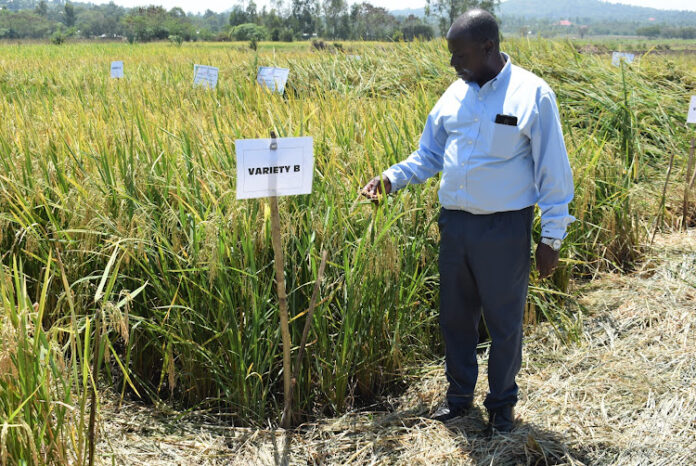The Kenya Agricultural Livestock and Research Organization (KALRO) is introducing new rice varieties and climate-smart technologies to farmers to end the shortage of commodity in the country.
The two varieties, 08FAN10 (Mkombozi) and CSR 36 are said to have superior characteristics to the traditional varieties and are set to be released for wider use by farmers in June.
According to KALRO, the two varieties are early maturing taking just 85-120 days to reach harvest, compared to the traditional varieties which take 150 days.
In addition, they are resistant to common rice pests and diseases in Kenya and can do well in poorer soils with minimal moisture.
CSR 36 can yield up to 5.5–6.0 tons per hectare under sodic soil conditions. In contrast, Basmati 3700– a popular local variety, only yields 2.4 – 3.8 tons per hectare under similar stressful environments.
High-yielding onion variety with a shelf life of up to six months
“These findings show that the variety is tolerant to these sodic soil conditions. Other than its salinity tolerance, CSR 36 is also medium-maturing, aromatic, has long and thin grains, softens when cooked, is non-sticky, and has ratooning ability.”
Speaking during the seed distribution event to 250 farmers on at Homa Bay County, Kalro’s Industrial Crop Research Institute Director, Finyange Pole added that the organisation was also training farmers on a new planting technology; Direct Seed Rice.
“Instead of farmers first raising rice seeds in a nursery before transplanting, with this technology you’ll just plant the rice directly on the farm as a seed. This will greatly save farmers time and labor,” he said.
The two new varieties which KALRO developed in partnership with the International Rice Research Institute (IRRI) and the Lake Basin Development Authority (LBDA) are expected to boost farmers’ yield and income as well as address the commodity shortage in the country.
Kenya has been producing only 200,000 tonnes, against the required quantity of 800,000 tonnes annually. The government is forced to import 600,000 tonnes to bridge the gap.








